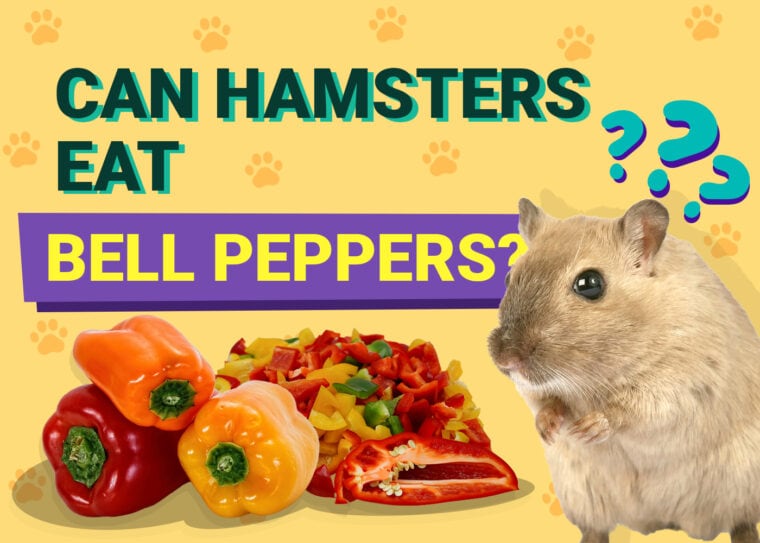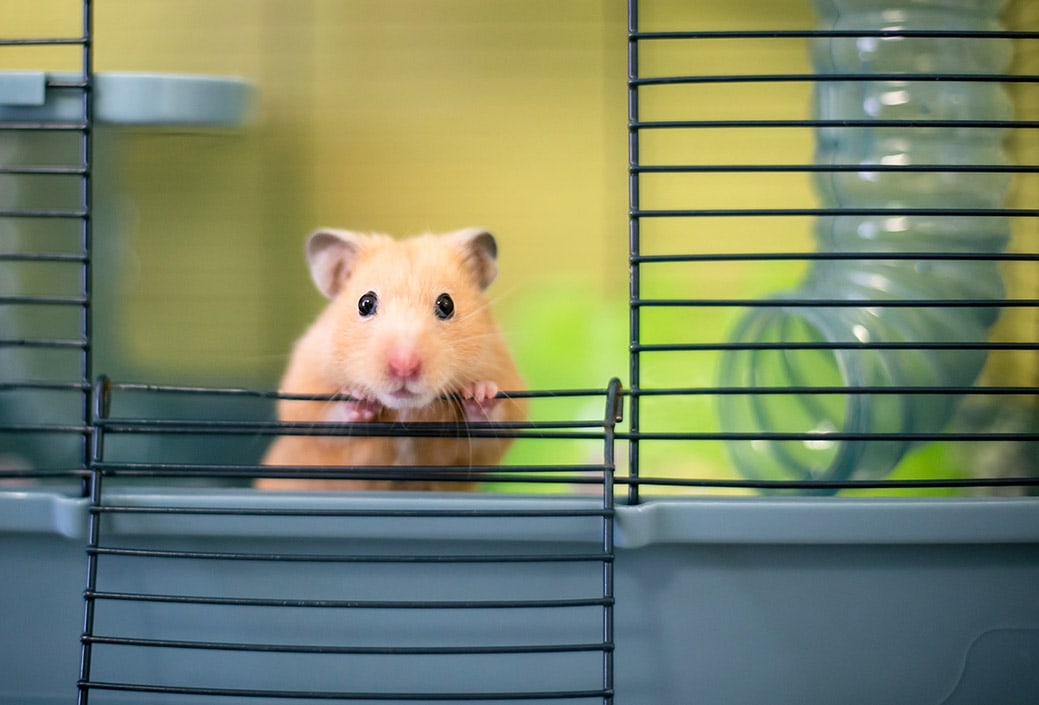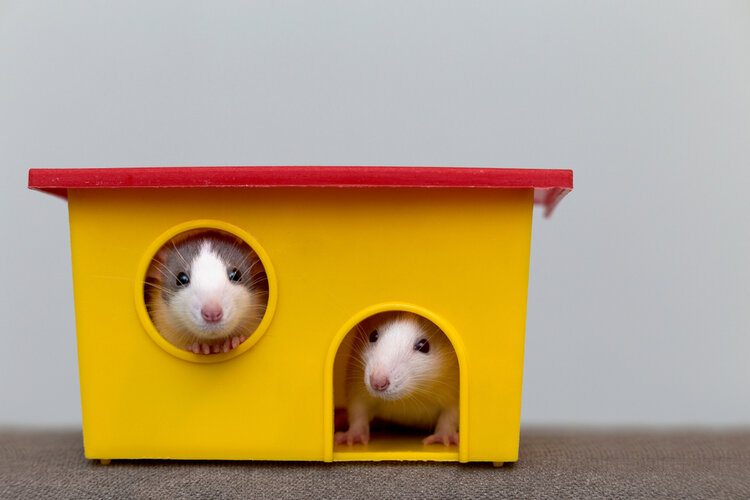
There is nothing more adorable than watching your hamster crunch on a snack. The way that they hold a piece of food in their little paws is adorable. But outside of their normal pallet-based diet, what else is safe to give them? If you’re wondering if hamsters can eat bell peppers, the good news is that they absolutely can!
Just remember, this shouldn’t be an everyday snack. Hamsters require many other food types daily to keep their diets balanced and bodies healthy.
Bell Peppers and Hamsters
Bell peppers are totally safe—and even healthy—for your hamster. Even so, it should only be a savory addition to their normal diet. You shouldn’t fill their food bowl full of peppers all the time and think that it counts as a well-balanced diet.
Your hamster benefits most from a nutritionally balanced, species-appropriate pellet feed. In addition to that, they can have a wide array of hay, seeds, nuts, fresh fruits, vegetables, and grains.

Bell Pepper Nutritional Facts
Bell peppers are filled with many wonderful nutrients1.
The nutritional value of other bell peppers (green, yellow, and orange) is similar to that of the red bell pepper. While there are a few differences among them, bell peppers of all colors are safe for hamsters.
That said, while bell peppers are a good source of vitamin C, this vitamin isn’t essential for hamsters—they can make it themselves. However, in times of disease, stress, illness, or reproduction, they can benefit from additional vitamin C in their diet. Still, it should be noted that it isn’t essential in their diet.
Why Moderation Is Key
As with all vegetables, moderation is essential when it comes to adding bell peppers to your hamster’s diet. The main reason for this is that bell peppers have a moderate amount of naturally occurring sugars, which aren’t recommended in high amounts for hamsters of all species.
Although bell peppers have fewer sugars than vegetables like beets, peas, and parsnips, they have more sugar than celery, cucumber, and asparagus. This middle-of-the-road sugar content somewhat affects the bell pepper’s appeal.
Also, most vegetables have a high water content rating, and diarrhea in hamsters can be triggered if they suddenly consume large amounts of a vegetable in one sitting.
If your hamster has diarrhea, do not attempt to rehydrate them with plain water, as this will make things worse. Seek a product made specifically for rehydrating hamsters, available from your pet store or veterinarian.
Diarrhea in hamsters should not be taken lightly, and if you notice diarrhea in your hamster, you should seek prompt professional care for them.

Do Hamsters Like the Taste of Bell Peppers?
Anecdotally, most hamsters enjoy the taste of bell peppers. They are crunchy and juicy and seem to pack a flavor punch. But that doesn’t mean every hamster will share the sentiment. You might have a hamster that takes one sniff and leaves it where they found it.
Taste preference depends on the individual hamster.

How Much Bell Pepper Should Your Hamster Eat?
Always offer your hamster tiny bits of bell pepper and only on occasion. Too many peppers might lead to other ailments that are deadly to your hamster. Give them one piece of a bell pepper that is approximately as long as their head.
Chopping bell peppers smaller isn’t necessary, as hamsters should be encouraged to chew food to keep their teeth properly worn down (like with other rodents, a hamster’s teeth continuously grow throughout their life). However, thoroughly washing the bell pepper, regardless of how it is sourced, is absolutely critical. In addition, it should not have mold, fungus, or any other signs of spoilage. Do not feed your hamster food or produce that is about to go bad; this can make them seriously ill.
Hamsters are instinctive hoarders and like to stuff food in their large cheeks to transport it back to their favorite hiding places or den to consume later. Wild hamsters instinctively do this because the ability to hoard food enables them to eat in peace without disturbances from predators or other threats. Pet hamsters will also demonstrate this habit.
Your hamster may take fresh produce to their favorite hoarding spots, so it is important to thoroughly check these areas to remove food items that spoil quickly. Rotting food in your hamster’s cage can lead to health issues for your pet.
Summary
Yes, hamsters can eat bell peppers in moderation. In fact, they are quite healthy treats. But any fresh produce you give them needs to be thoroughly washed first. Remove any uneaten items from their cage after an hour or so to avoid spoilage.
See also:
- Can Hamsters Eat Arugula? Vet-Verified Benefits & Risks
- Can Hamsters Eat Green Beans? What You Need to Know!









